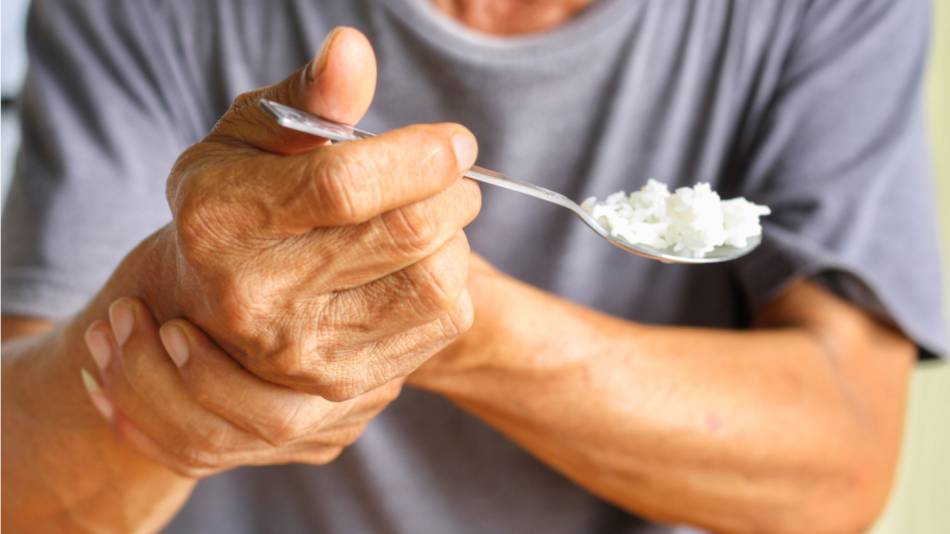
Answer:
There is no convincing evidence that dietary supplements help delay progression or improve motor impairment in people with Parkinson's disease unless they are deficient, although some may help with non-motor symptoms, such as sleep disturbance, depression, and psychoses.
Parkinson's disease leads to loss of nerve cells in the brain that produce dopamine. Dopamine is a chemical that allows nerve cells to communicate and control movement. Loss of these dopamine-producing nerve cells results in motor impairment, as well as non-motor symptoms such as depression, sleep disturbances, and cognitive impairment. Oxidative stress and mitochondrial dysfunction are also thought to contribute to Parkinson's disease (Bega, J Mov Disord 2014).
Since many supplements — including vitamins D and E, niacin, melatonin, creatine, S-adenosyl-L-methionine (SAMe), N-acetyl-cysteine (NAC), valerian, coenzyme Q10 (CoQ10), curcumin, cannabidiol (CBD), and Mucuna pruriens (velvet bean) — as well as certain dietary interventions like the MIND diet, the Mediterranean diet and coffee, are promoted as antioxidants, for improving mitochondrial function, for boosting dopamine, or for targeting non-motor symptoms of Parkinson's disease, there is interest in using these ingredient to help treat or prevent this condition. People with Parkinson's disease also tend to have lower levels of vitamin B-6 and vitamin B-12, and supplementation with these vitamins may be beneficial for some people with this condition.
The Evidence for Supplements in Treating Parkinson's Disease
Vitamin E was one of the earliest antioxidant supplements tested in people with Parkinson's disease. Despite results from a pilot study suggesting that high-dose vitamin E (in combination with high-dose vitamin C) may slow Parkinson's disease progression, higher quality research among people with early stage Parkinson's disease found that taking high-dose vitamin E as alpha-tocopherol daily for over one year did not delay the onset of disability or the need to use levodopa compared to placebo.
Coenzyme Q10 (CoQ10) is an antioxidant that can also improve mitochondrial function. Although preliminary research suggested CoQ10 might delay the progression of Parkinson's disease, evidence from a larger study in people with early Parkinson's disease found no benefit from high doses of CoQ10 (1,200 mg or 2,400 mg daily). In fact, high-dose CoQ10 tended to worsen symptoms (although the difference was not statistically significant).
Creatine is an amino acid with antioxidant effects that also helps supply muscles with energy. Although preliminary research suggested creatine may be beneficial in people with Parkinson's disease, a large study showed that taking 10 grams of creatine daily in addition to dopaminergic drugs did not slow Parkinson's disease progression over 5 years.
N-acetyl-cysteine (NAC) may lessen oxidative damage by increasing levels of the antioxidant glutathione. A preliminary study (with no placebo-control) found that NAC — given simultaneously by mouth and, at much larger dose, intravenously — seemed to improve symptoms and slightly increase dopamine transporter binding in people with Parkinson's disease. Keep in mind that any contribution of the oral NAC was likely much smaller than intravenous NAC.
S-adenosyl-L-methionine (SAMe) is a naturally occurring compound that assists the body in producing dopamine and other compounds. SAMe seems to reduce depression scores in people with Parkinson's disease who have major depression disorder. It may also improve motor symptoms, but larger, long-terms studies are needed to confirm this. Daily doses used in clinical studies ranged from 800 mg to 3,600 mg. SAMe may also relieve side effects of levodopa, but it may also reduce levodopa effectiveness over time.
Melatonin may improve sleep in people with Parkinson's disease (in which the body's own production of melatonin may decrease) short-term, when taken in 2 mg or 3 mg doses one hour before bedtime. However, melatonin does not improve motor symptoms.
Valerian, which can have sedative effects, did not demonstrate an overall benefit for reducing sleep disturbances in a study of people with Parkinson's disease, although further analyses of the results suggested a possible benefit in the male participants. It should be noted that many conventional sedative hypnotic drugs also do not work in people with Parkinson's disease.
Cannabidiol (CBD) (which is technically not a dietary supplement but is frequently sold as one) may help alleviate non-motor symptoms of Parkinson's disease (such as mood and sleep disturbances and psychoses) according to preliminary studies, but CBD does not appear to improve tremor or motor function in people with Parkinson's disease. In fact, there are reports of high doses of CBD worsening motor symptoms in some people with Parkinson's.
Niacin is believed to reduce neuroinflammation in people with Parkinson's disease. Two small studies suggest that high doses of niacin may improve quality of life and mood, decrease fatigue, and slow decline in motor function. However, more research is needed, and a high dose of niacin was reported to improve Parkinsonian symptoms in one person but caused side effects (including severe nightmares and skin rash) that made it intolerable. There is speculation that niacin in large doses may actually be a contributing factor to the development of Parkinson's disease.
Magnesium levels have been found to be low in the brain and cerebrospinal fluid of people with Parkinson's disease. However, no clinical research has demonstrated that taking magnesium prevents or slows the progression, or improves symptoms, of Parkinson's disease, and certain forms of magnesium can interact with prescription drugs for Parkinson's.
5-HTP is an amino acid that is involved in the synthesis of serotonin and can also be converted from L-tryptophan in the body. It is often sold as a supplement to improve sleep. A small, preliminary study among people with Parkinson's disease and REM sleep behavior disorder (RBD) found that 5-HTP supplementation did not reduce the frequency of sleep disturbances, although it modestly improved self-reported functioning during activities of daily living.
Curcumin, a compound in turmeric, has been of interest for Parkinson's disease treatment based on its anti-inflammatory and antioxidant effects. However, a small clinical study showed that supplementing with curcumin along with standard treatment for Parkinson's disease did not improve symptoms or quality of life compared to standard treatment alone.
Mucuna pruriens (velvet bean) is a natural source of levodopa (2.5% to 5.7% of the bean's weight). A small clinical study showed it to benefit Parkinson's disease when taken at high dose. In the study, those taking a single large amount (about 23 grams) of M. pruriens powder providing about 1,300 mg of levodopa showed 25% longer duration of "on state" (i.e., able to move more easily) as well as greater improvements in motor performance and fewer involuntary movements compared to a similar dose of levodopa plus benserazide (a drug that reduces peripheral side effects of levodopa) (Cilia, Neurology 2017). M. pruriens supplements are generally made with extracts that provide higher concentrations of levodopa (L-dopa) than bean powders, claiming to be standardized to 15% to 98% L-dopa.
Tests of 16 commercially available M. pruriens supplements found that amounts of L-dopa per serving ranged from none to 241 mg — although products with the lowest amounts did not list a specific amount of M. pruriens. For products that listed amounts, the study reported that "the actual quantity of levodopa was 228% to 2,186% greater than the estimated quantity" (Cohen, JAMA Neurol 2022). However, analysis of the study data by ConsumerLab found this to be somewhat misleading, as the researchers treated each product as if it were an M. pruriens bean powder and not an extract and they expected only 3.9% of the listed amount to be L-dopa despite many labels stating much higher concentrations.
ConsumerLab calculated that the six products that listed both an amount of extract and a percent L-dopa actually provided 26%, 88%, 94%, 99%, 129%, and 142% of their expected amounts of L-dopa. For example, the product providing the most L-dopa per serving (which is likely to have been DopaBoost from Designs for Health, which includes additional ingredients) claimed to provide 425 mg of M. pruriens extract standardized to "60% levodopa," which means it should have provided 255 mg of L-dopa, and it was found to provide close to this amount — 241 mg, or 94% of claim. This is a significant amount of L-dopa, comparable to prescribed amounts (and higher than typically given at the start of prescription therapy). Ten other products did not provide adequate information to truly estimate their L-dopa content. However, potential benefits of L-dopa in DopaBoost might be limited by the fact that DopaBoost also contains vitamin B-6, which, as noted below, may reduce the effects of L-dopa when taken without carbidopa, a prescription drug that is not in supplements. Carbidopa prevents L-dopa breakdown in the bloodstream — allowing more to enter the brain. It is often taken with prescription L-dopa. It does not appear that DopaBoost has been evaluated in any clinical studies for managing Parkinson's disease. Although the amount of L-dopa in some M. pruriens supplements is comparable to that in maintenance prescription doses, due to the variability among products, caution should be taken with M. pruriens supplements, and, at a minimum, one should look for a product that lists an amount of extract and % L-dopa.
Taking levodopa to treat Parkinson's disease can cause vitamin B-6 deficiency. Symptoms may include peripheral neuropathy and seizures. Supplementation with vitamin B-6 may be beneficial for these patients. However, vitamin B-6 can also reduce the effects of levodopa and should generally be avoided by people taking levodopa alone. Vitamin B-6 does not significantly affect carbidopa-levodopa (Sinemet), and carbidopa/levodopa can be given to people receiving vitamin B-6 supplements. Although there is some evidence that carbidopa can bind to and form insoluble complexes with vitamin B-6 in test tubes (Daidone, PLoS One 2012), and an animal study has shown that repeated administration of extremely high doses of carbidopa can lower levels of vitamin B-6 in rats (Airoldi, Metabolism 1978), no strong evidence has confirmed this interaction in humans. At least one article promoting the purported interaction between carbidopa and vitamin B-6 has been retracted by the publisher due to lack of supporting evidence (Hinz, Clin Pharmacol 2014; article retracted in March 2021).
People with Parkinson's disease also tend to have lower levels of vitamin B-12, and lower levels of this B vitamin have been linked with increased progression of Parkinson's disease. While it is unknown if vitamin B-12 supplementation slows Parkinson's progression, it may help reverse symptoms of neuropathy among people with low B-12 levels due to levodopa treatment.
Mannitol, a natural sweetener, showed promising results for treating Parkinson's disease in laboratory studies, but preliminary clinical research suggests no significant benefit. In the cell-based studies, mannitol was shown to interfere with the clumping of alpha-synuclein protein, a process that can lead to nerve cell death and is considered to be hallmark of Parkinson's disease development (Shaltiel-Karyo, J Biol Chem 2013). However, a small clinical study among 22 adults (average age 67) with Parkinson's disease showed that taking mannitol twice daily for 36 weeks did not improve non-motor symptoms, cognitive abilities, or sense of smell — or induce changes in doses of Parkinson's disease medication — compared to placebo. No serious side effects were reported, although 6 of 14 people in the mannitol group experienced GI symptoms such as diarrhea, nausea, and abdominal discomfort, and five of these individuals required a dose reduction. Mannitol was initially given in doses of 2.5 grams twice daily, which was gradually increased to 9 grams twice daily (Linetsky, Front Neurol 2022).
A preliminary study suggested that PEA (palmitoylethanolamide) might reduce motor and non-motor symptoms in people with Parkinson's disease when taken as an add-on to regular levodopa treatment, but the study did not include a placebo group, which is needed to prove a benefit.
CDP-choline (a.k.a., citicoline) does not appear to improve cognition among people with Parkinson's disease and mild cognitive impairment, but it may slow cognitive decline.
The Evidence for Supplements in Preventing Parkinson's Disease
Vitamin D supplementation has not been shown to prevent Parkinson's disease, but a study in Finland found that people with the highest vitamin D levels (above 20 ng/mL) in their blood had a 65% lower risk of developing Parkinson's disease than those with the lowest vitamin D levels (below 10 ng/mL).
Coffee intake has also been associated with reduced risk of Parkinson's disease. A study among 8,004 Japanese-American men (average age 53 years) who were followed for about 27 years found that those who drank coffee had a two- to three-fold lower risk of Parkinson's disease compared to those who never drank coffee (Ross, JAMA 2000).
Mediterranean diet adherence may or may not help stave off Parkinson's disease. One study found high adherence to the Mediterranean diet to be associated with later age of Parkinson's disease onset (delayed about 6 to 8 years) in men but not women. However, high adherence to a modified Mediterranean diet (known as the MIND diet) was associated with later age of Parkinson's disease onset (delayed by about 15 to 17 years) in women but not men (Metcalfe-Roach, Mov Disord 2021). While these results are promising, they do not show a cause-and-effect relationship.
Join today to unlock all member benefits including full access to all CL Answers and over 1,400 reviews.
Join NowAlready a member? Sign In Here.
Join now at www.consumerlab.com/join/

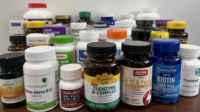
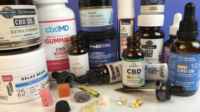
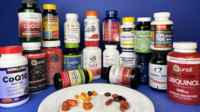
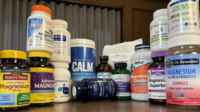
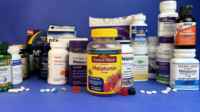
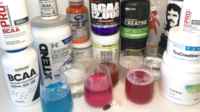
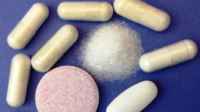
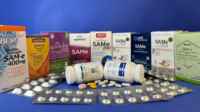
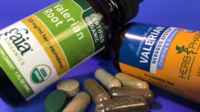
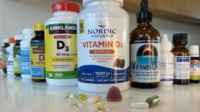
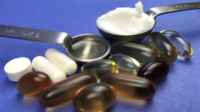

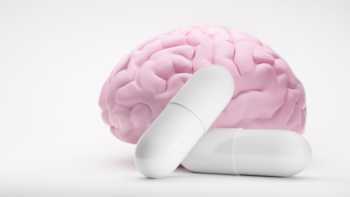

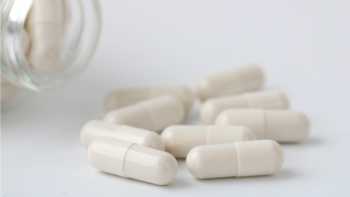





Submit your comment
This feature is restricted to active members.
Join now to add comments and get all member benefits, including over 1,400 reviews.
Join NowAlready a member? Sign in here.